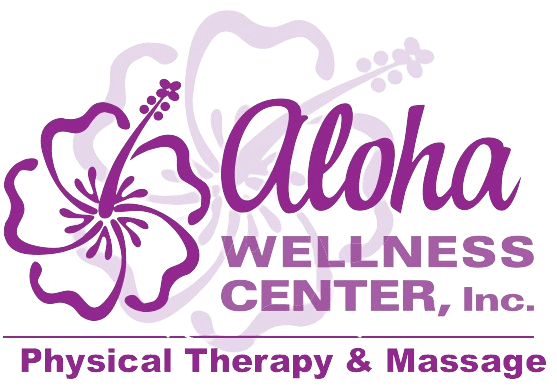Health & Wellness Services

Cold Laser Therapy
Laser therapy is also known as photobiomodulation. It entails the use of specific wavelengths of light (red and near-infrared) to generate a photochemical response in damaged or dysfunctional tissue.
The LASER works by creating an increase in vasodilatation (blood supply), bringing oxygen to the cells. It stimulates the lymphatic system, pulling edema and inflammation from the area. ATP (Adenosine triphosphate) production is stimulated in the cells,adenosine helping them have the energy to function normally. The pain reflex is broken, offering immediate relief of pain.
Laser therapy can alleviate pain, reduce inflammation and accelerate recovery from a wide range of acute and chronic clinical conditions. A significant reduction in edema (swelling) has been noted, and tissues are better able to move fluids out through lymphatic drainage pathways.
Since being cleared by the FDA in 2003, Class IV LASER therapy has become the standard of care for many musculoskeletal injuries. Class IV LASERs can penetrate over 4 inches into the deep musculoskeletal tissue. The number of treatments required depends on the nature of the problem and the length of time the patient has been affected by it. Some conditions may be resolved with as little as one treatment. However, chronic and/or deep-seated conditions may take as many as 10 treatments.
LASER therapy technology has been recently endorsed by professional organizations such as the American Physical Therapy Association (APTA), the World Health Organization (WHO) and the International Association for the Study of Pain (IASP). There are no known side effects from LASER therapy and the results are long-lasting.
Laser therapy has been proven to be effective for a wide variety of conditions. Some of them include:
- Soft Tissue Injuries: Tendinitis
- Back and Neck Pain
- Carpal Tunnel Syndrome
- Myofascical Trigger Points
- Epicondylitis (Tennis Elbow)
- Sprains, Strains
- Repetitive Strain Injuries
- Chondromalacia Patellae
- Plantar Fascitis
- Degenerative Joint ConditionsRheumatoid Arthritis (RA)
- Osteoarthritis (OA)
- Neurogenic Pain
- Herpes Zoster (Shingles)
- Post-traumatic Injury
- Trigeminal Neuralgia
- Fibromyalgia
- Diabetic Neuropathy
- Chronic Non-Healing WoundsDiabetic Foot Ulcers
Burns
What is low-level laser therapy?
Cold laser therapy, otherwise known as low-level laser therapy, uses light and photon energy to stimulate cellular metabolism. Cold laser therapy has been demonstrated to be effective in the treatment of a variety of painful and inflamed conditions of the soft tissues and joints, such as carpal tunnel syndrome, arthritis, back pain, and sports injuries. A cold laser has the unique property of being able to penetrate up to two inches below the skin surface, causing an increase in cellular metabolism with no tissue damage whatsoever.
Is cold laser therapy painful?
No, the therapy is painless and totally non-invasive. There is just a deep, gentle warmth as your body’s cells respond to the light.
Is low-level therapy safe?
The FDA has proven that the therapy is safe. The only contraindication (warning) is for use directly in the eye.
Is the laser FDA-approved?
Yes, the laser was first approved on February 11, 2002 for the treatment and management of carpal tunnel syndrome.
Does laser therapy really work?
- Yes, research has demonstrated that:
- Injuries treated with LASER therapy heal faster
- LASER Therapy has a strengthening effect on tissue repair
- LASER Therapy improves blood flow and lymphatic drainage
- It is an effective means of relief for many pain syndromes
- It can improve immune response
How does the LASER treatment work?
Treatment for pain is performed by the physical therapist by placing the laser in contact with the skin, allowing the photon energy to penetrate tissue, where it interacts with various intracellular biomolecules, resulting in the restoration of normal cell function. This enhances and essentially speeds the body’s natural healing processes.
The treatment process results in the disappearance of symptoms. Additionally, the immune system response is stimulated, lymphatic drainage is improved, production of growth hormone is increased, and the body’s natural healing processes are enhanced and essentially sped up.
What are the effects of LASER therapy?
Physiological Effects:
- Biostimulation, including improved metabolism and increased cell metabolism
- Improved blood circulation and vasodilatation (blood supply)
- Analgesic (pain-relieving) effect
- Anti-inflammatory and anti-edematous effects
- Acceleration of tissue repair and wound healing
- Relieves acute and chronic pains
- Increases the speed, quality and tensile strength of tissue repair
- Increases blood supply
- Stimulates the immune system
- Stimulates and improves nerve function
- Develops collagen and muscle tissue
- It helps generate new and healthy cells and tissues.
- Promotes faster wound healing and clot formation
- Reduces inflammation
- Angiogenesis (improved circulation)
- Reduction in fibrous tissue (scar tissue) formation
Biochemical Effects:
- Releases Nitric Oxide
- Increase ATP Production
- Increase Fibroblast Migration
- Increase Macrophage Activity
- Increased Keratinocyte Activity
- Increased RNA-DNA Synthesis
- Increase Enzyme Production
- Increase SOD Production
How long is each treatment?
Treatments last between 8 and 20 minutes, depending on your injury and the body part being treated.
How many treatments are required before I see results?
You should notice improvements to your condition within 5 to 10 brief treatments.
For More Information About Laser Therapy Call Us Today
Contact
Elevate Your Wellness Journey
Fill out the form below, and let's start this empowering journey together. Your path to relief, restoration, and revitalization begins here.
